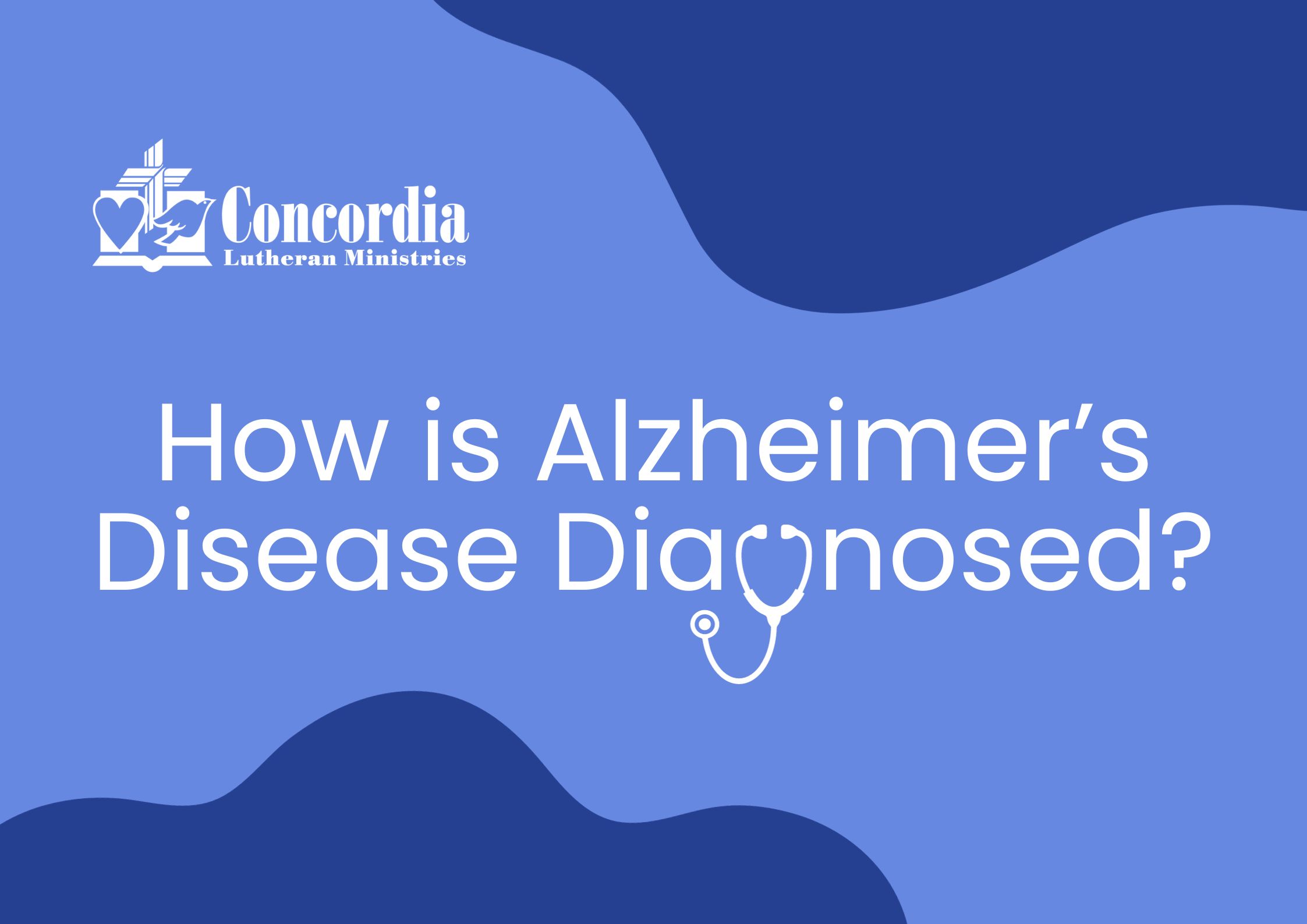How is Alzheimer’s Disease Diagnosed?

November is National Alzheimer’s Disease Awareness Month. It’s a time to honor the over six million Americans living with Alzheimer’s as well as their caregivers, and it’s also a time to raise awareness about the disease. Early, accurate diagnosis can be extremely beneficial, but it can also be a complicated process.
Please keep in mind that this information is for educational purposes only, and does not substitute for medical advice.
There is no one test that can immediately verify if a patient has Alzheimer’s. Many other types of dementia, such as Lewy body dementia and frontotemporal dementia, can share symptoms with Alzheimer’s, making careful testing necessary. According to the Alzheimer’s Association, “physicians use diagnostic tools combined with medical history and other information, including neurological exams, cognitive and functional assessments, brain imaging (MRI, CT, PET) and cerebrospinal fluid or blood tests to make an accurate diagnosis.”
Related: How to Detect the Early Signs of Dementia
When a patient or primary care doctor suspects Alzheimer’s, the patient may be referred to a specialist who can provide a detailed diagnosis or further assessment. The National Institute on Aging lists geriatricians, geriatric psychiatrists, neurologists and neuropsychologists as experts that might be asked to weigh in.
After being referred, a patient’s medical team may take multiple steps to reach a diagnosis, which often involve testing to rule out other conditions:
- Medical history
A patient’s medical history will be reviewed to look for behavioral and cognitive changes, medication history and other medical problems a patient may be facing. Doctors may also perform genetic tests to look for risk genes that may make a patient more likely to develop Alzheimer’s or deterministic genes that directly cause it.
- Physical exam and diagnostic tests
A patient can be fully checked on all vital signs to assess his or her overall health. These can include functional and behavioral tests and even computerized cognitive tests.
- Neurological exam
A patient will be fully screened for other brain conditions that may have caused their symptoms to rule them out, and doctors might also use brain imaging tools such as MRIs and CT scans to see if they can rule out other conditions.
Related: Alzheimer’s Awareness Month: The Value Of A Healthy Brain in Prevention
- Depression screen
A patient will be evaluated based on his or her mental status, especially regarding depression, because this and other mood disorders can sometimes cause similar symptoms to dementia.
- Spinal fluid and blood tests
A patient may undergo a minimally invasive procedure for doctors to analyze their cerebrospinal fluid, which may contain certain markers that indicate Alzheimer’s. Though not as common, blood tests can also be used to check for certain markers in a patient’s blood.
Alzheimer’s disorder and other forms of dementia can present differently for different people, but some or all of these tests can be used as a diagnostic workup to check for Alzheimer’s symptoms and rule out other conditions. Though many cases are different, once a patient does receive an Alzheimer’s diagnosis, they should know they aren’t alone.
Related: Tips for Handling a Dementia or Alzheimer’s Diagnosis
The National Institute on Aging states that taking the steps to reach or rule out a diagnosis can assist patients and their families in:
- Planning for the future
- Taking care of financial and legal matters
- Addressing potential safety issues
- Developing support networks
- Learning about living arrangements
Many senior care communities like Concordia offer specialized memory care in a safe and secure atmosphere. Offered at Concordia of Fox Chapel, Concordia of the South Hills and Concordia at Villa St. Joseph, memory care at Concordia is overseen by a compassionate and highly trained team that values each individual and his or her needs. We also offer adult day services at our Concordia at Cabot campus, which assists caregivers in meeting the needs of a person with physical problems or diminished reasoning skills.
If you have questions about the dementia-related care options offered at Concordia, feel free to contact us any time via our online contact form or by calling our administrative headquarters at 724-352-1571. You can also visit the Memory Care page of our website for details. For information on other senior living services we offer, such as Personal Care, In-Home Care, Adult Day Services, and Hospice Care, visit the care levels & services page of our website.
Get Updates From Concordia
There is always a LOT happening at Concordia! Would you like to stay up-to-date with our news and events? Sign up for our monthly e-newsletter here.